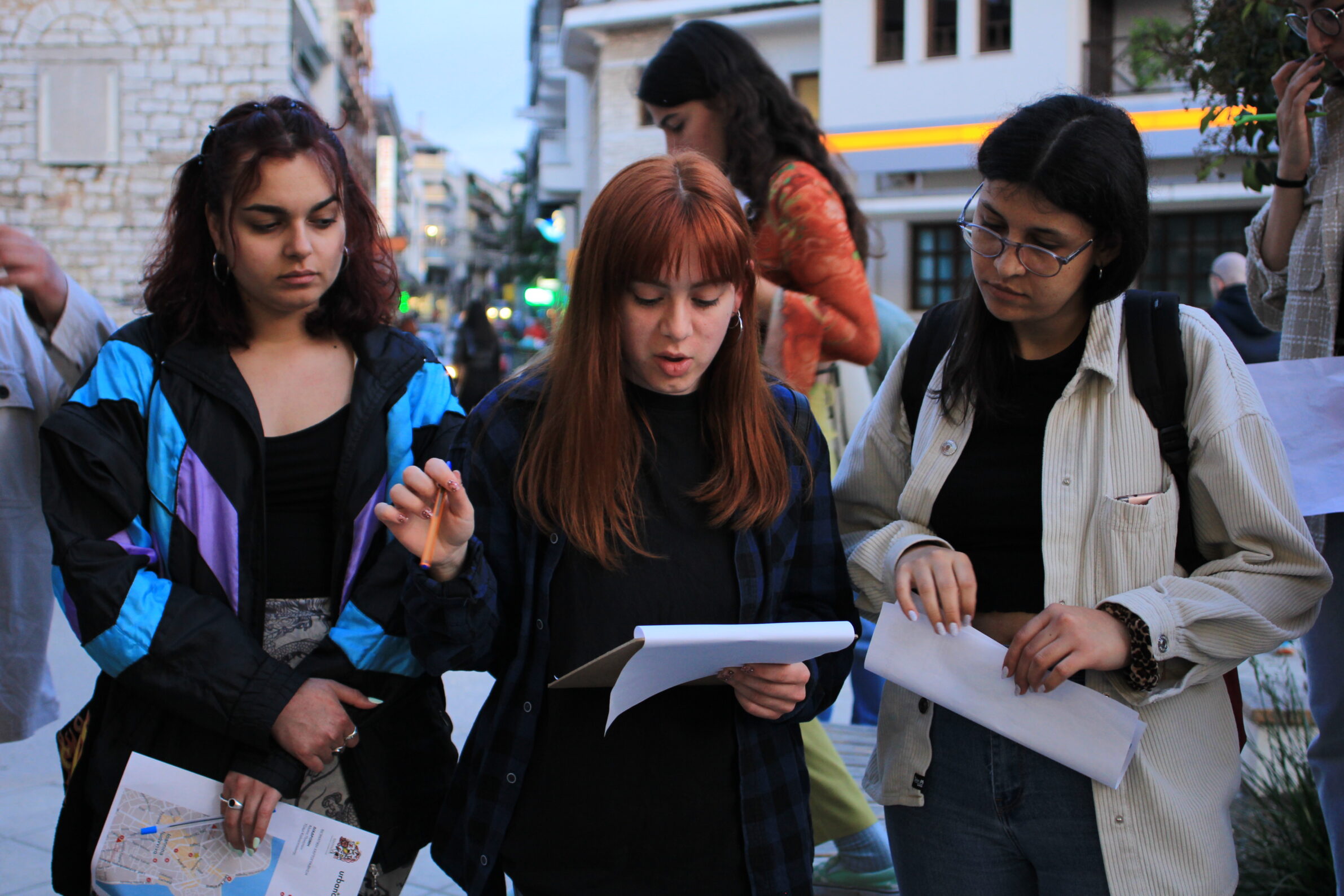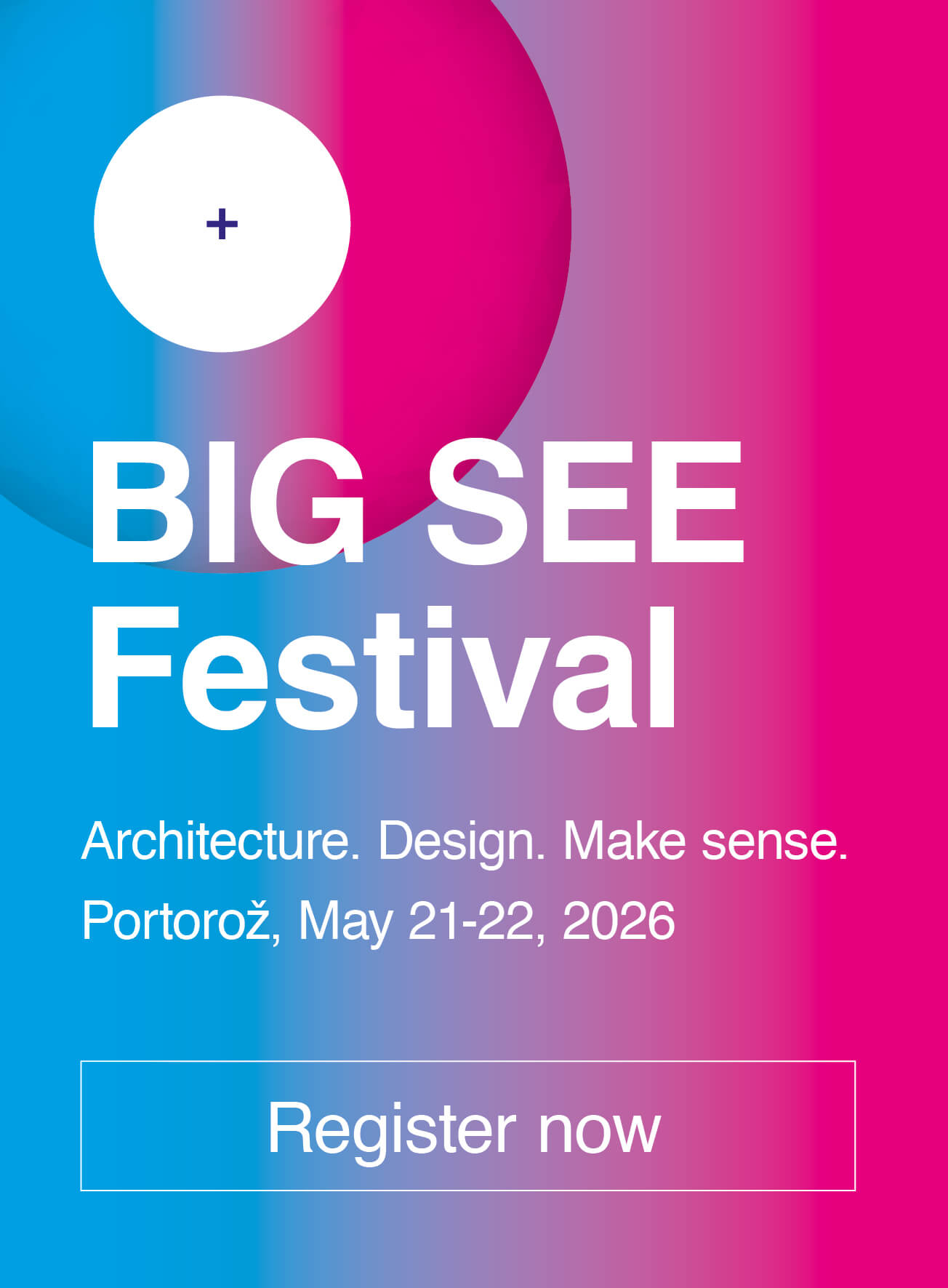Interview with URBANA
David Harvey, a British Professor of anthropology and geography at the Graduate Center of the City University of New York, once stated that “the freedom to make and remake our cities and ourselves is one of the most precious yet most neglected of our human rights”. In the first quarter of 21st century, the global multiple social and environmental crises demand both the redesign of our cities and of ourselves. Contemporary urban design aims at smart, sustainable, resilient and inclusive cities which can foster technological innovation while enhancing the well-being and happiness of their citizens, regardless of their age, race, gender and sexual orientation.
URBANA is a diverse team of architects, educators, social and political scientists founded in 2019 in Athens, Greece aiming at raise awareness of DEI (Diversity, Equity, and Inclusion) design practices in the urban field.
What are the main goals and values of the URBANA team?
Our main objective is to ensure the right to the city for all people, highlighting the unheard needs and desires of more vulnerable groups and individuals that to date have not been broadly involved in city-making processes (e.g. children, young people, the elderly, women, LGBTQI+ people, migrants, people with disabilities). Through participatory, inclusive and gender-sensitive methodologies and approaches, we aim to create spaces of participation where everyone feels comfortable, safe and valued to contribute their experiences and aspirations for their city. We see the residents and users of a space as the main “experts” in the urban planning of their neighbourhoods, as they are the ones who know first hand the everyday problems and local capacities. At the same time, we aim to serve as a valuable connector between communities and their local authorities, facilitating their cooperation and providing a “meet in the middle” approach for sustainable (in both environmental and social terms) urban development at a local level.
URBANA, as the name suggests, is all about the city, and a form of contemporary everyday life that actively promotes feminist urban planning procedures. Can you elaborate on this using examples of some of your recent projects?
Feminist urban planning is about putting people’s everyday realities at the centre of our practices and discourses, highlighting the gendered aspects of these. Our perspective is intersectional, meaning that we take into account multiple social characteristics that intersect with gender, such as colour, age, cultural or ethnic origin, class, functionality, and so on. Feminist urban planning advocates equal access to, and ownership of, public spaces. It promotes the active engagement of all citizens, with a specific focus on women and other more vulnerable groups, and provides them with the context and tools to get empowered and become active agents of change.
Within the framework of the EU Horizon Project ELABORATOR, in which we are participating, our aim is to provide the necessary tools and support for the 12 cities involved in this project to implement measures for inclusive, sustainable, affordable and safe mobility in their local contexts. As part of this project, we designed an plan with specific guidelines to be followed in all phases of the project to ensure inclusivity. We also organised internal training sessions to ensure a common understanding of inclusivity and gender perspectives in urban planning in the different local contexts of our partners.
Your work fundamentally revolves around participatory design. Please elaborate using examples of some of your recent projects.
In all of our projects we introduce participatory tools and methodologies for the inclusive participation of local communities in those projects that are going to affect their future realities in their cities.
For the last eight months we teamed up with the architecture studio Superwien from Vienna for the project “Greece – Sustainable Cities and Regions Through Integrated Territorial Investments’’, which is part of the Technical Assistance for Sustainable Urban Development in Greece implemented by the World Bank with the support of the European Commission’s Directorate General for Regional and Urban Policy (DG REGIO). Our role is to provide technical support to the municipal authorities of three Greek cities (Heraklion, Kalamata, Kavala) as they seek to transform their urban landscapes through participatory processes with the local communities. Together with Superwien, we implemented Urban Labs with residents, students, older people, local organisations, and the local authorities. The ideas gathered from these participatory activities will form the proposals for the upcoming interventions to improve the quality of life in these cities. Urbana and Superwien are now working together to deliver a complete set of proposals to each municipality and to further support them in the implementation process.
At the same time, we are developing participatory methods in the context of several European projects. For the Erasmus+ project DiverCity, we are working with three organisations across Europe (Estel from Sabadell in Spain, Urban Foxes from Brussels in Belgium, and Culture Goes Europe based in Erfurt in Germany). DiverCity is about empowering young women across Europe to actively participate in city-making processes for their neighbourhoods. In our case, we formed a group of about 20 young women who live or work in the Pangrati neighbourhood of Athens. Together, we discussed how our gendered experiences affect our realities, we made exploratory walks in the neighbourhood and we evaluated our experiences using the urban quality criteria that URBANA has developed over the years. At this point, we are working together to design a small-scale project to be implemented through participatory budgeting processes in one (or more) selected public spaces in Pangrati. Participatory budgeting is a democratic process that allows citizens to be directly involved in deciding how financial resources should be allocated to their communities. For the purposes of DiverCity, all the partners have secured a specific amount of our budget to be spent on this process, which is managed by the local communities themselves.
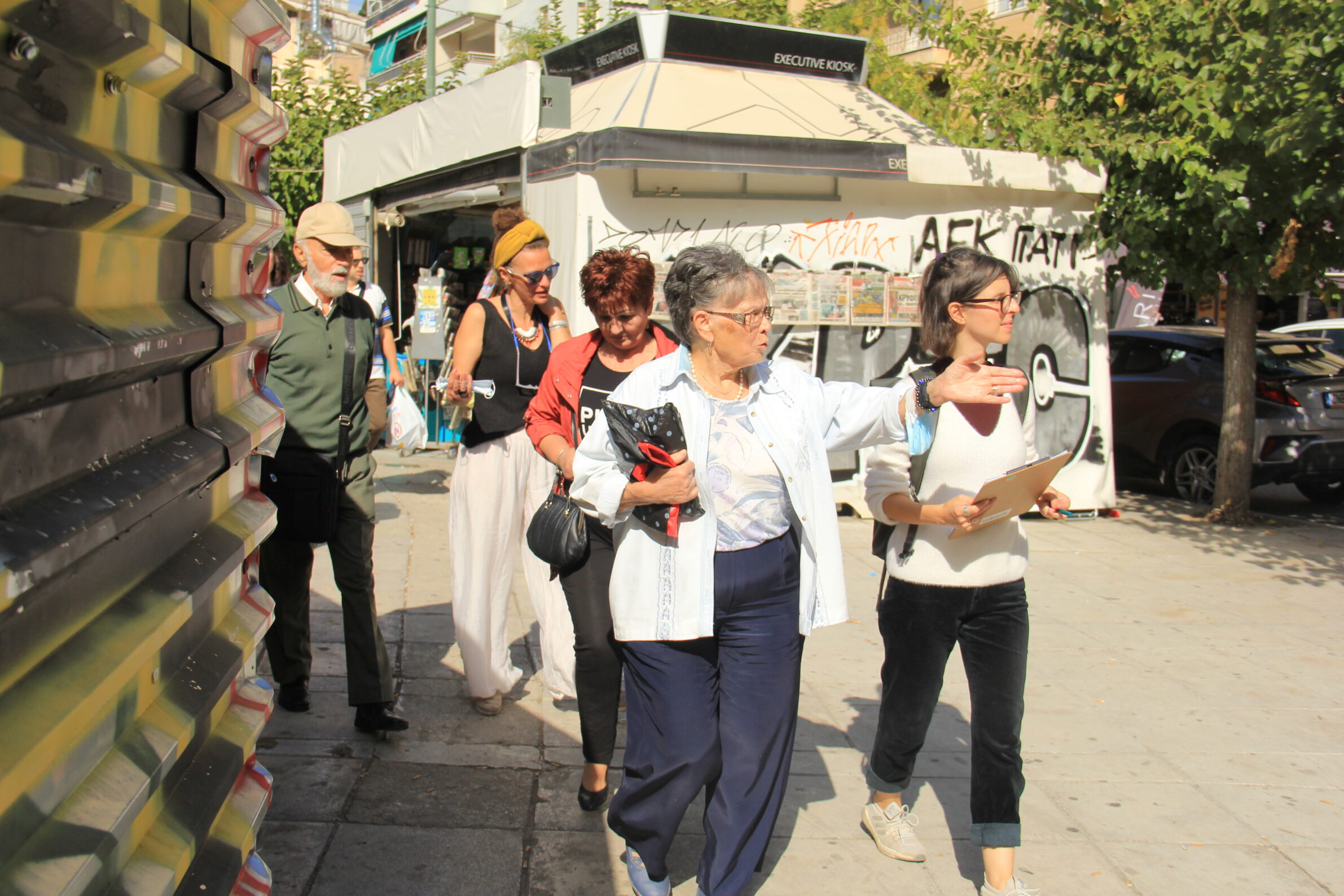
Workshop with older people (Athens, City of all ages – Funded by the TIMA Foundation)
URBANA’s mission is to guarantee the right to the city for all. As conceptualised by the French sociologist Henri Lefebvre and British geographer David Harvey “the right to the city” is a collective right to change the city and shape the process of urbanisation. To what extent has the philosophy of these two distinguished thinkers shaped URBANA’s work?
The concept of the right to the city (from the French Marxist sociologist Henri Lefebvre) is about freedom of access to the urban environment, recognising that cities and people interact through a prism of mutual determination. As such, people can and should have the freedom to bring change to the city, while at the same time transforming the urban environment and themselves. David Harvey, on the other hand, focused on the right of access to all public spaces for all residents, regardless of their socio-economic background, arguing that everyone should and must participate in the decision-making processes of their cities in order to eliminate inequalities and injustices in urban environments.
By focusing on who can and should make these changes in the city, URBANA amplifies Lefebvre’s and Harvey’s ideas from the perspective of intersectional feminism, and thus through the lens of gender, in relation to the different social groups that suffer additional social oppression, but also from a bottom-up methodological approach that amplifies the emergence of the needs, experiences and voices of less privileged social groups. In this way, the notion of the “universal man” – homo universalis – that Lefebvre seems to use is critically addressed, as not all people have the same desires and needs with regard to public space, but conversely, public space has not been created in a way tha meets the desires and needs of all people.
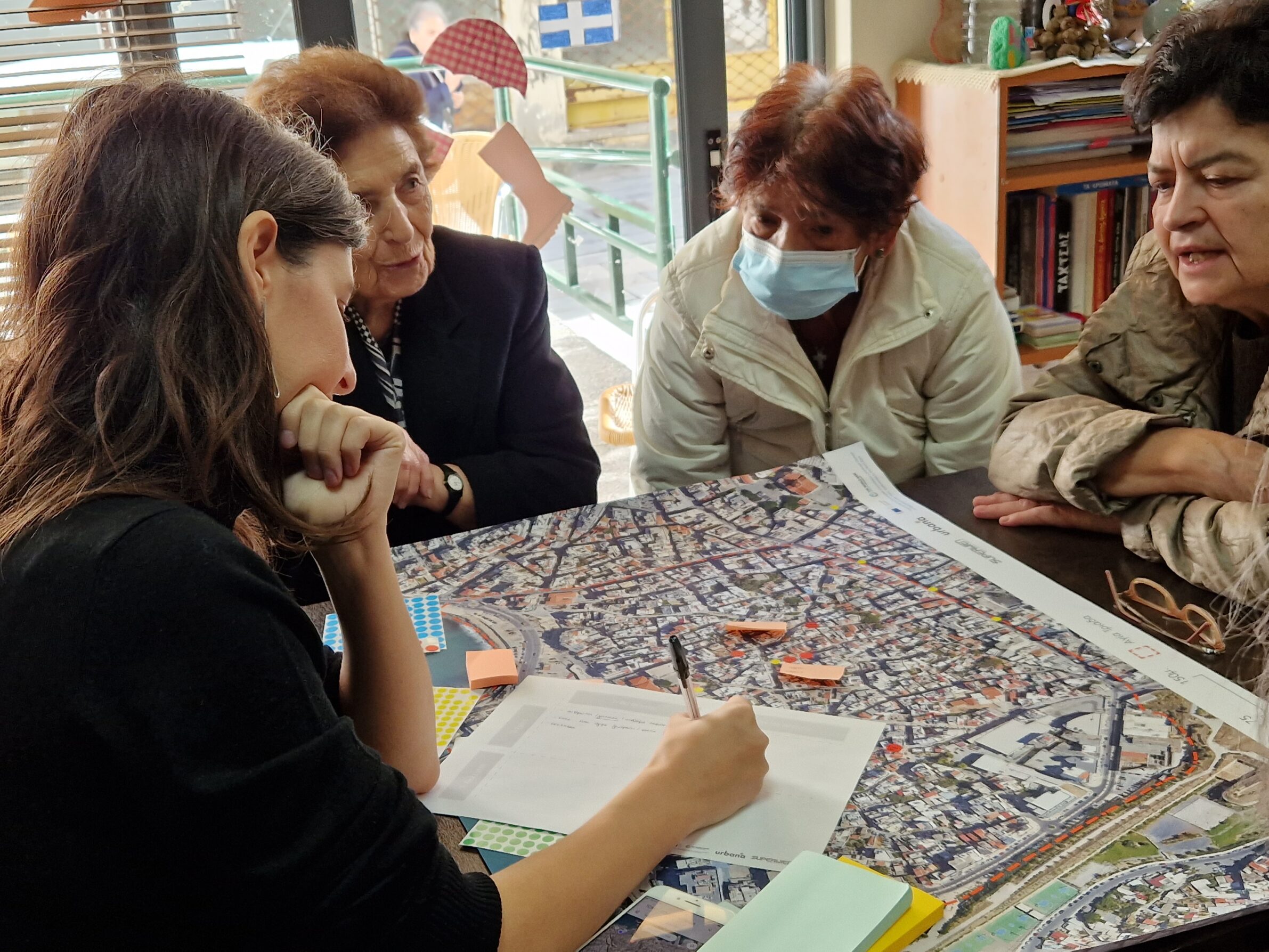
Visioning workshop with older people in Heraklion (Crete) in collaboration with Superwien (Technical Assistance for Sustainable Urban Development in Greece implemented by the World Bank with the support of the European Commission’s Directorate-General for Regional and Urban Policy (DG REGIO))
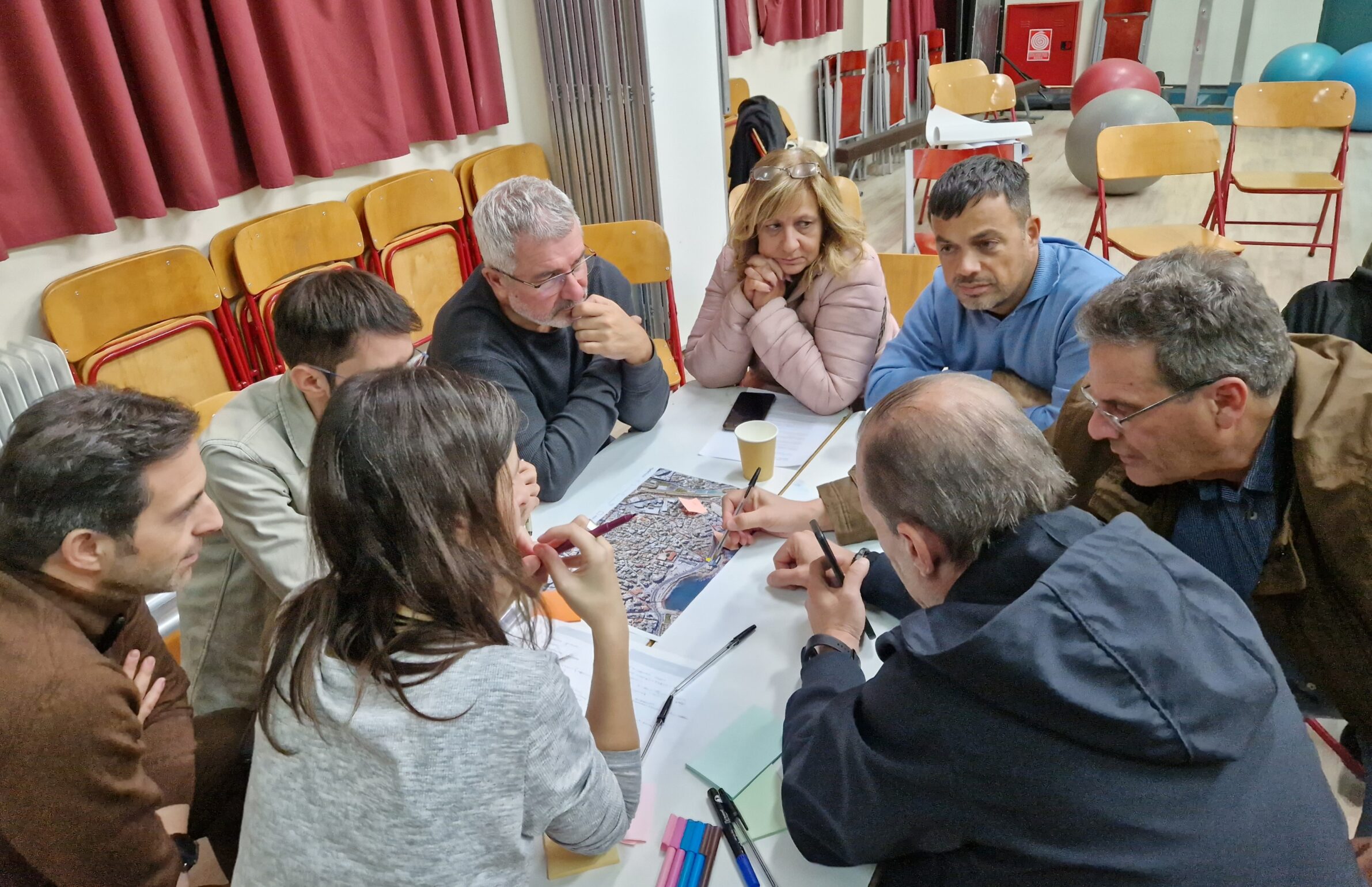
Visioning workshop with older people in Heraklion (Crete) in collaboration with Superwien (Technical Assistance for Sustainable Urban Development in Greece implemented by the World Bank with the support of the European Commission’s Directorate-General for Regional and Urban Policy (DG REGIO))
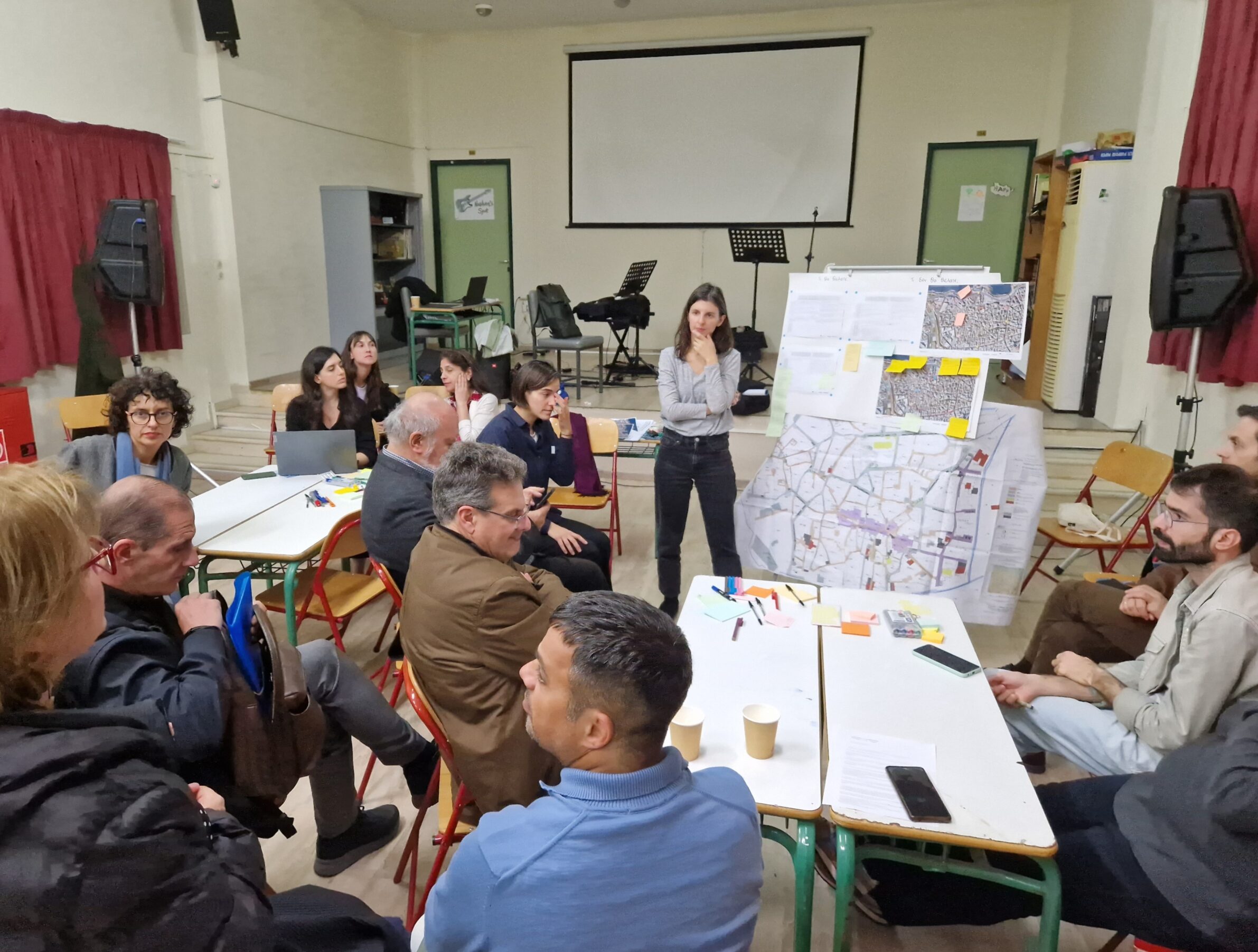
Visioning workshop with older people in Heraklion (Crete) in collaboration with Superwien (Technical Assistance for Sustainable Urban Development in Greece implemented by the World Bank with the support of the European Commission’s Directorate-General for Regional and Urban Policy (DG REGIO))
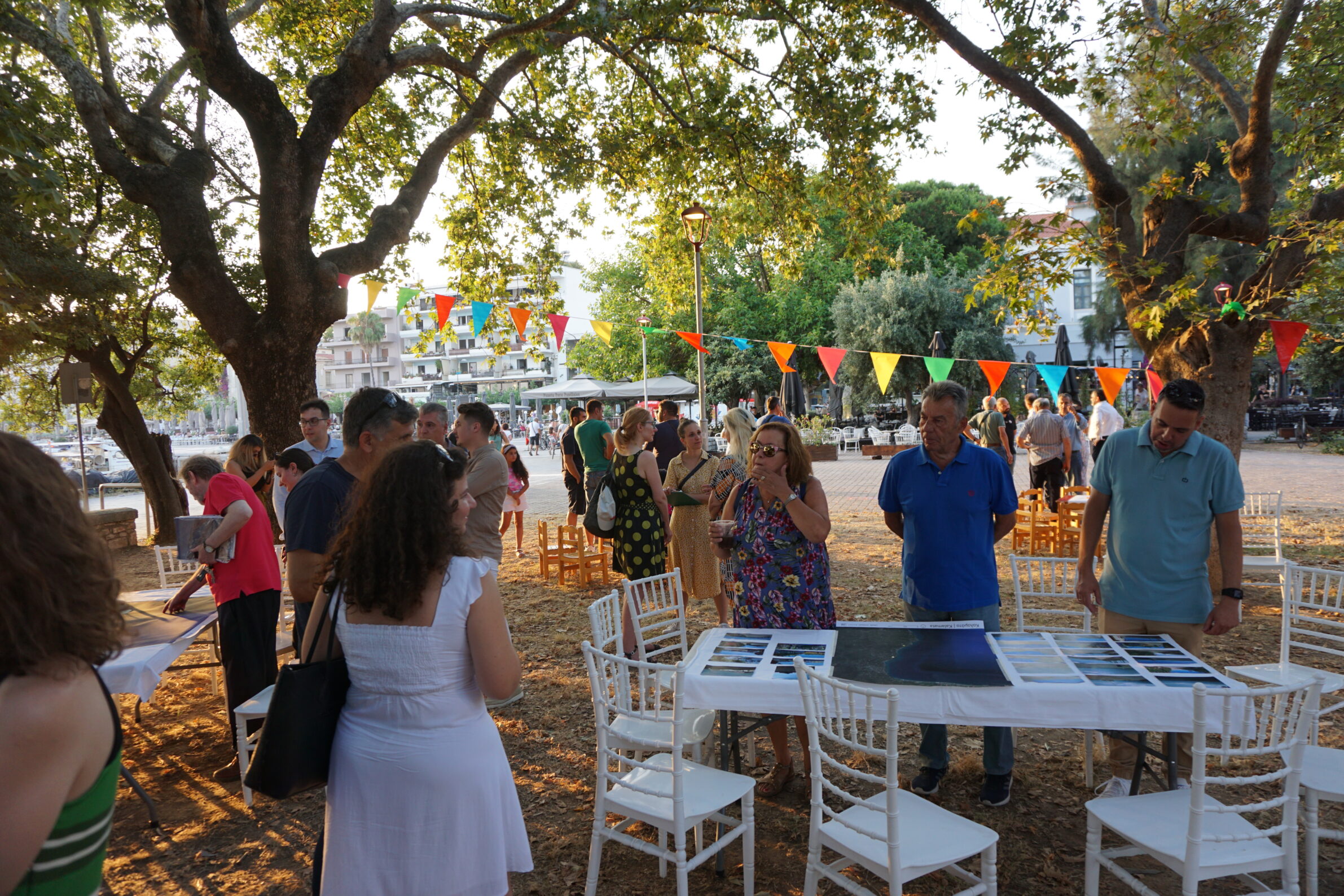
Visioning workshop with older people in Heraklion (Crete) in collaboration with Superwien (Technical Assistance for Sustainable Urban Development in Greece implemented by the World Bank with the support of the European Commission’s Directorate-General for Regional and Urban Policy (DG REGIO))
URBANA started in 2019 as an initiative by the architect Eva Grigoriadou. Since then the team has evolved to incorporate a wide range of interdisciplinary professionals. Entering 2024, some four and a half years into the project, in what ways have the goals of the team evolved?
Over the past four and a half years, URBANA has evolved through the inclusion of professionals with diverse expertise and perspectives. This interdisciplinary format is crucial to our practice, as it gives us the necessary background to provide a more holistic approach for our work.
Although the beginning of URBANA was difficult and radically affected by the pandemic, we see our work evolving in different ways in recent years. On the one hand, we are very happy to see that communities across Greece, and beyond, are eager to participate in the development of their neighbourhoods. This contrasts with the narrative that people nowadays are individualistic and indifferent to what happens in the public sphere. Young women in particular – the largest of the groups we focus on – are very active and passionate about being part of the processes that are changing their city. Although our work can support this enthusiasm to a certain extent, it is crucial for local authorities to take action, provide support and oversee the inclusive participatory methods followed at all levels of urban planning.
At the same time, we are excited about the opportunity to participate in various European projects. We are passionate about research that is directly connected to the needs of people at the level of everyday life. Our aim in this regard is to produce high quality socio-spatial research that has valuable outcomes for communities across Europe and the world, by having both a local understanding and a global perspective. The challenges faced by cities have many of the same intersections, so our work at the European level gives us important insights to broaden our understanding and provide valuable support to different cities and diverse communities.
Our next step is to grow and mature our team. We want to involve more professionals with different expertise and perspectives, and at the same time offer our services – research, community participation, urban planning, etc. – at different levels and in different local contexts. We are based in Greece, but we understand that cities are evolving in similar yet different ways, and we are increasingly confident that we can provide them with the necessary support to address the most challenging issues of our time – such as climate change and sustainable development, affordable housing, transport, social integration, and equitable access to services, among many other things – in more inclusive and equitable ways.
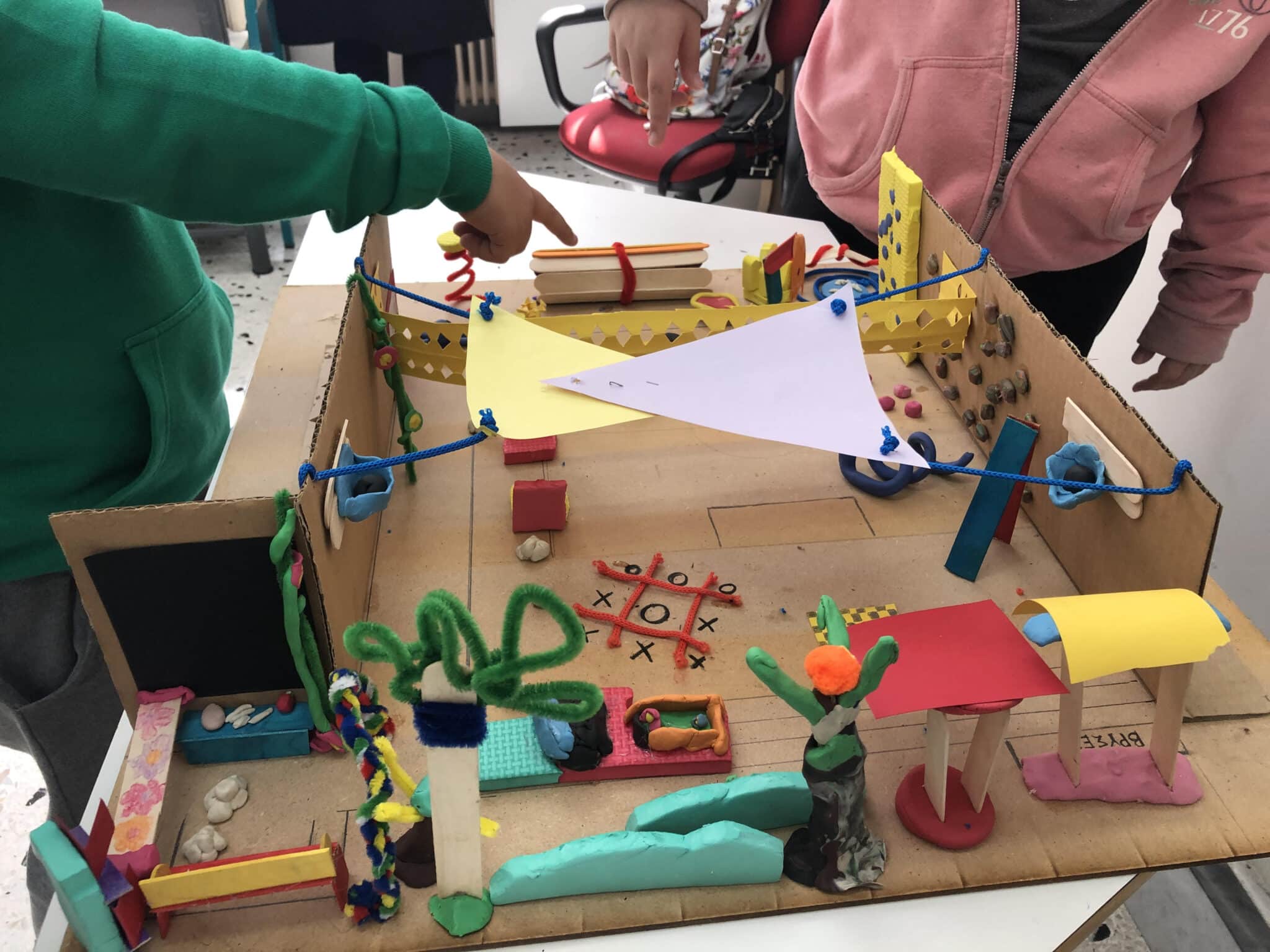
Reimagining the schoolyard as inclusive with students in Athens (Inclusive schoolyards – funded by the Hellenic Ministry of Culture)
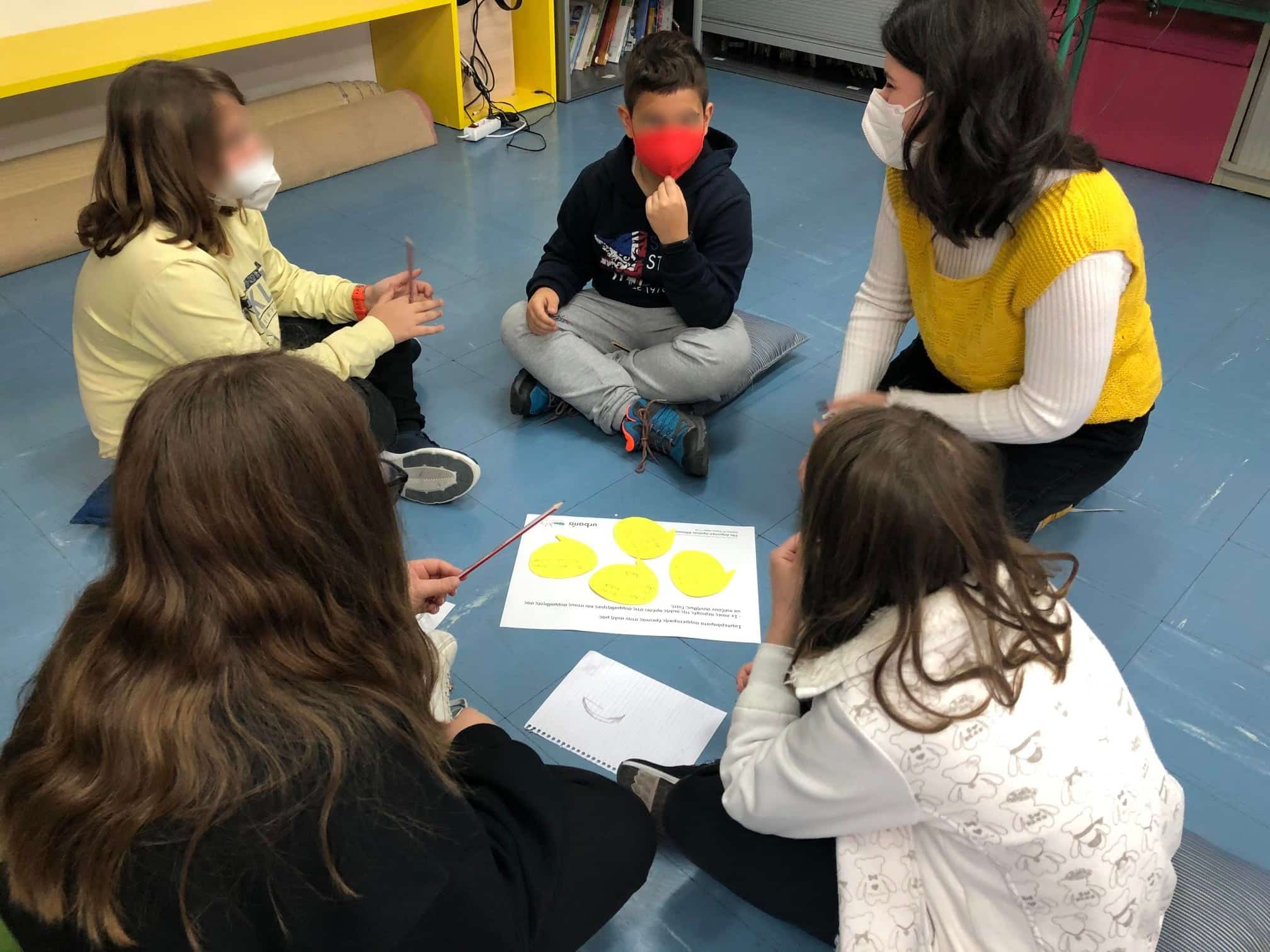
Interviewing students on their daily experiences in the schoolyard (Inclusive schoolyards – funded by the Hellenic Ministry of Culture)
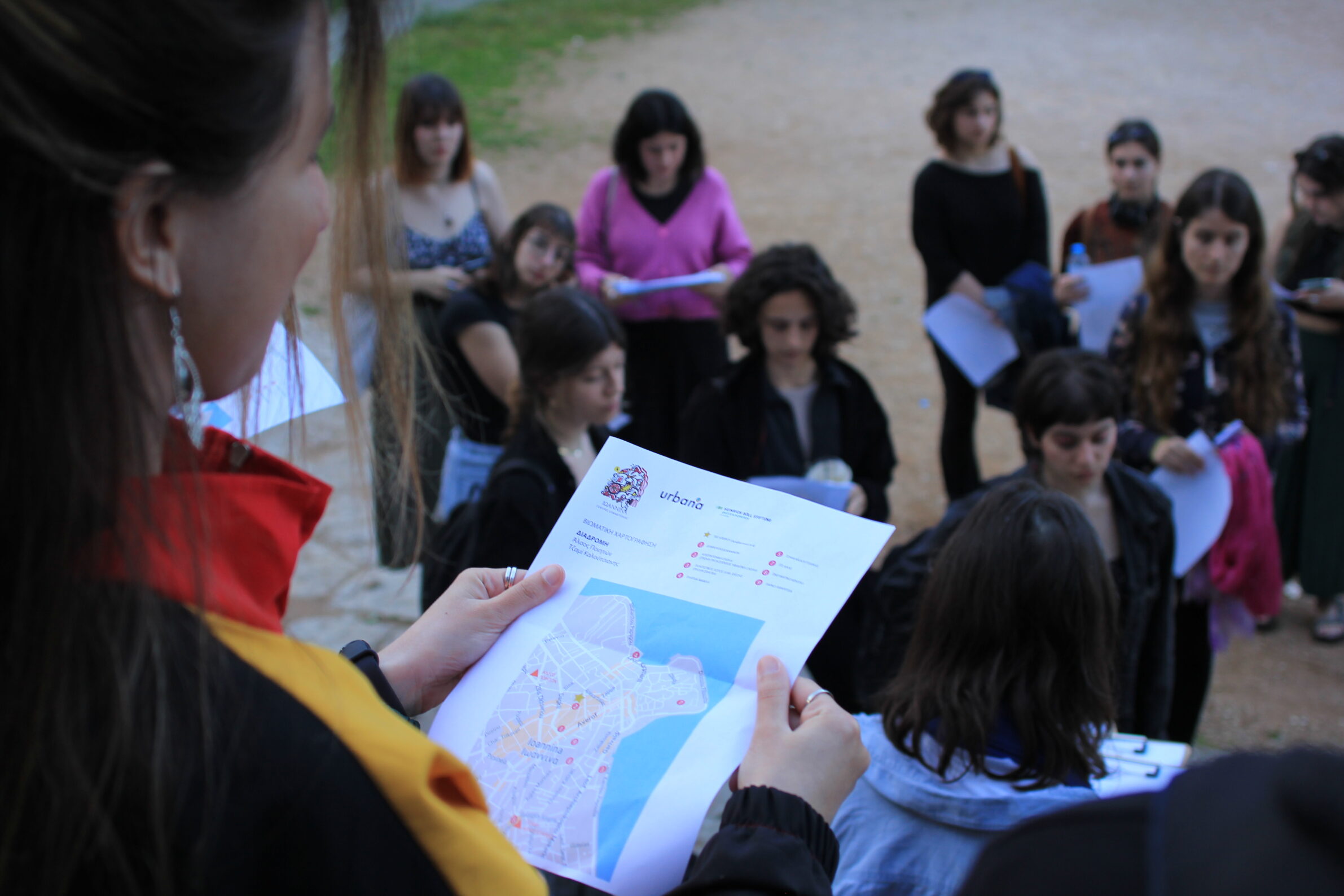
Exploratory walk with young women in Ioannina (Ioannina Bridges of Participation – funded by HBSGR)
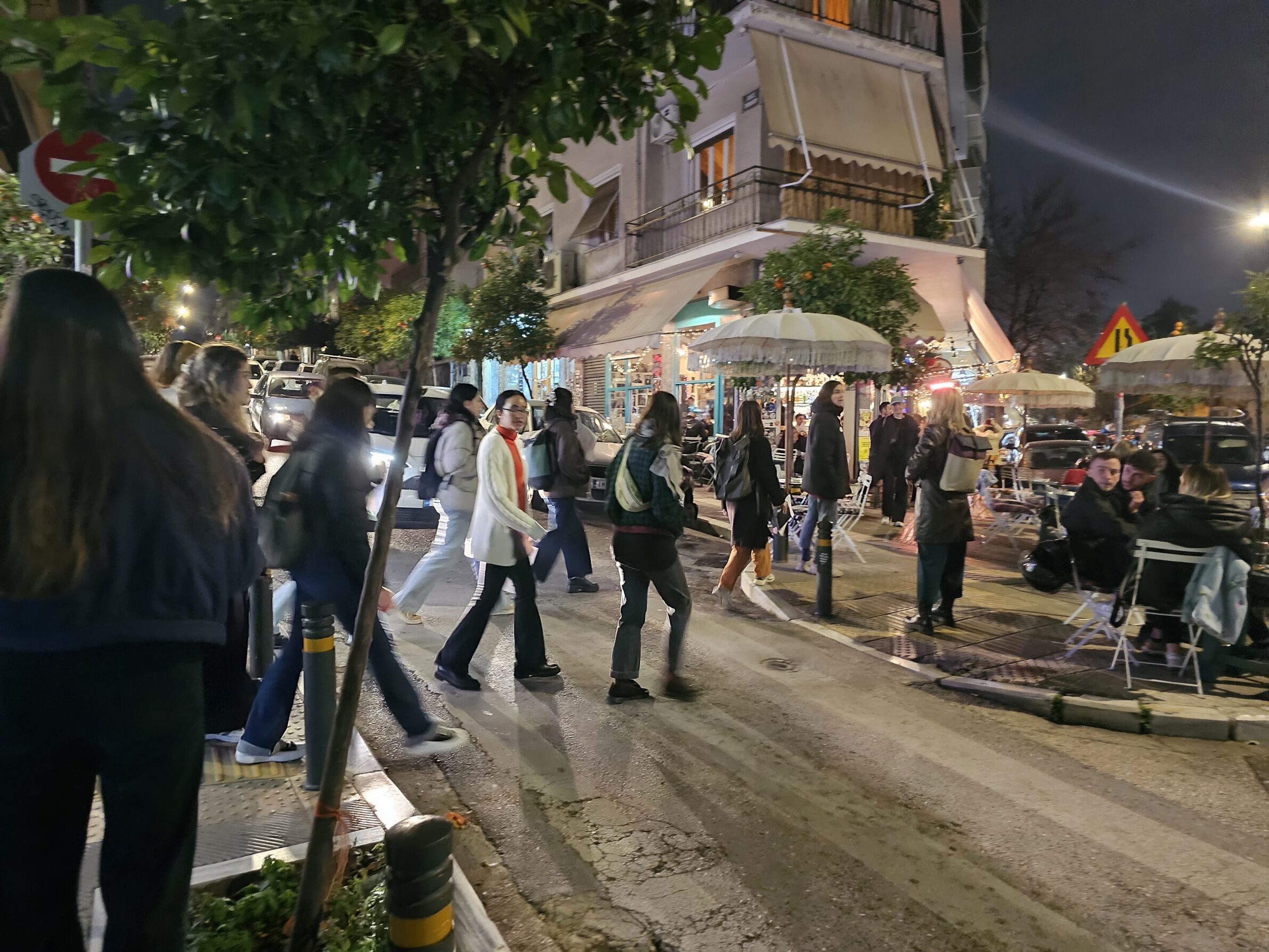
Exploratory walk in Pagrati neighbourhood with young women (DiverCity – Erasmus+ EU project)
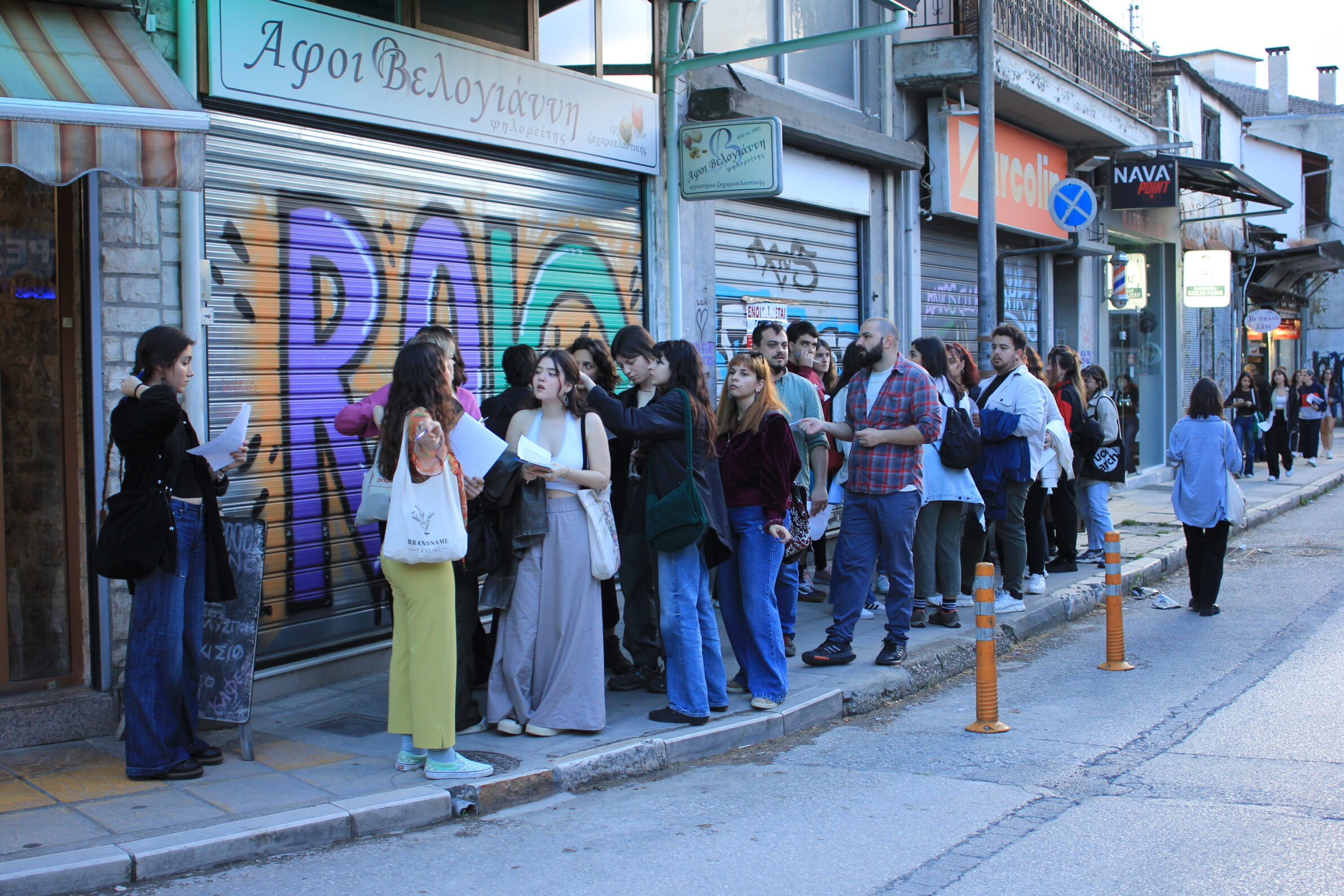
Exploratory walk (Ioannina Bridges of Participation – funded by Heinrich Böll Stiftung Greece)
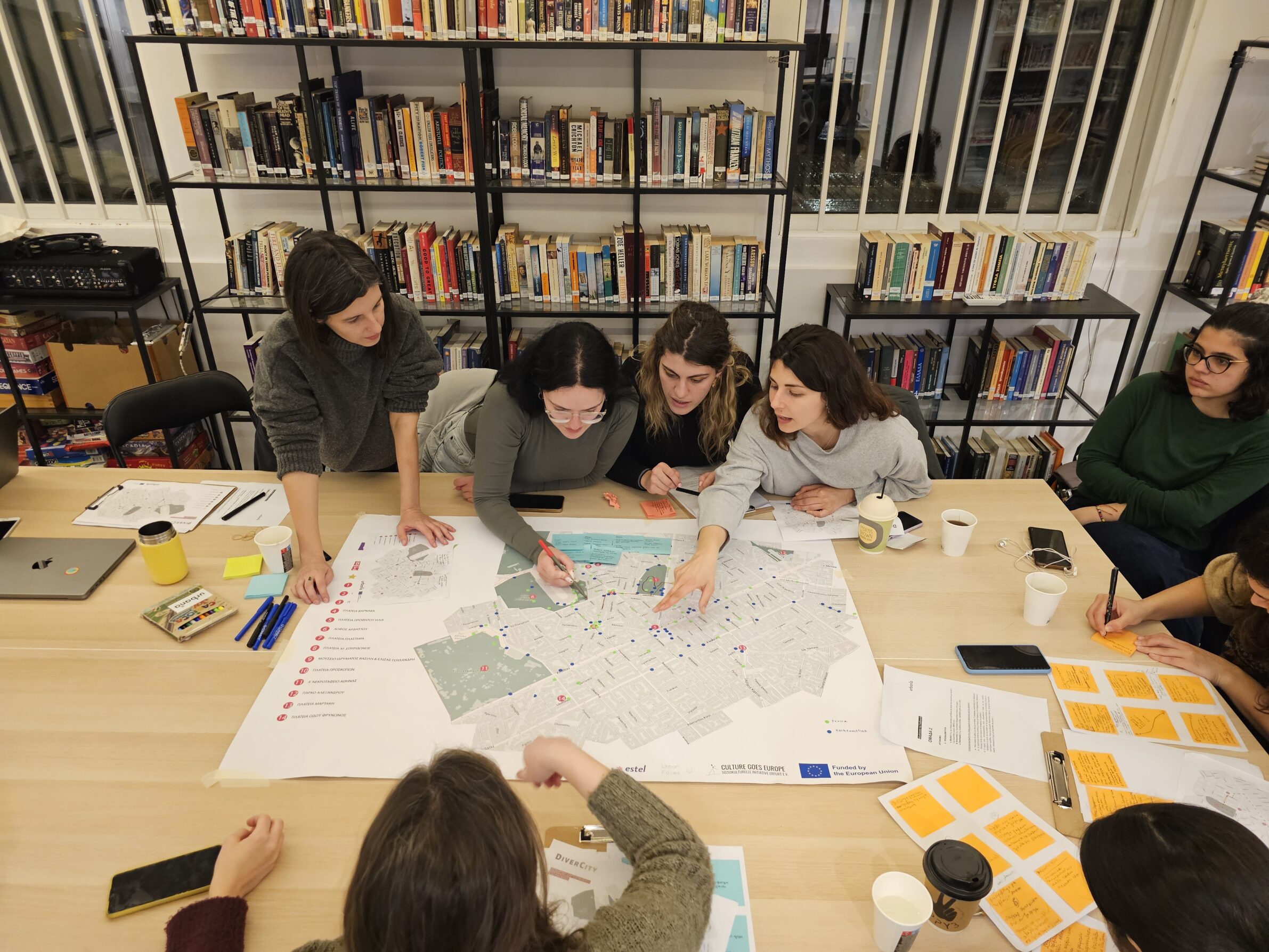
Collective mapping of Pagrati neighbourhood (Athens) (DiverCity – Erasmus+ EU Project)
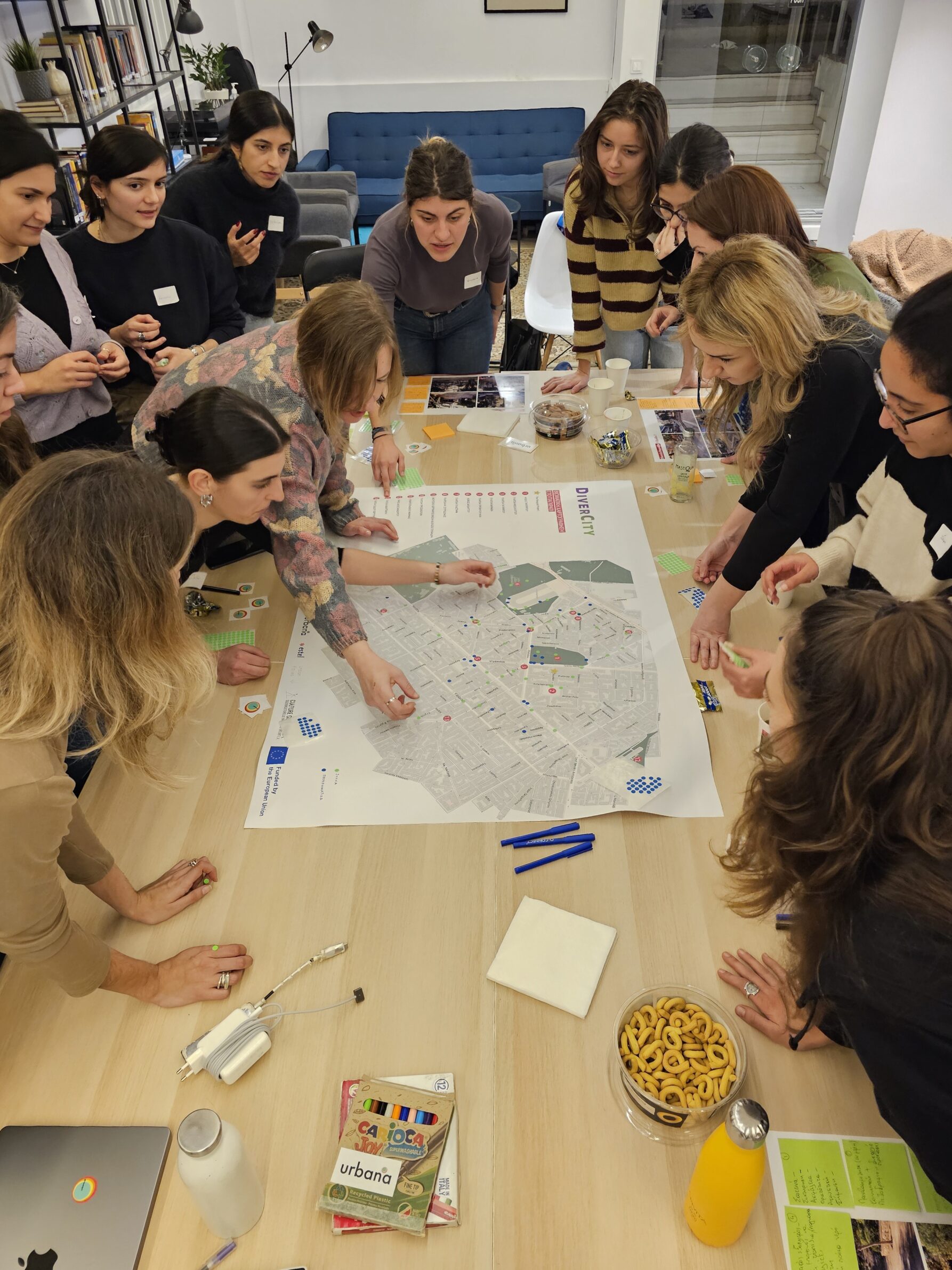
Collective mapping of Pagrati neighbourhood (Athens) (DiverCity – Erasmus+ EU Project)
Text: Melina Arvaniti-Pollatou
Photos: archive of URBANA


